Frontier Nursing University (FNU) recently introduced its Antiracism and Bias Advisory Council (ABAC). The ABAC’s purpose is to review and make recommendations for alleged bias incidents to mitigate bias at FNU.
This committee, made up of a diverse group of Frontier employees, is needed to support diversity, equity and inclusion efforts as the university shifts to an antiracist culture. The council reports to FNU’s Chief Diversity and Inclusion Officer, Geraldine Young, DNP, APRN, FNP-BC, CDCES, FAANP.
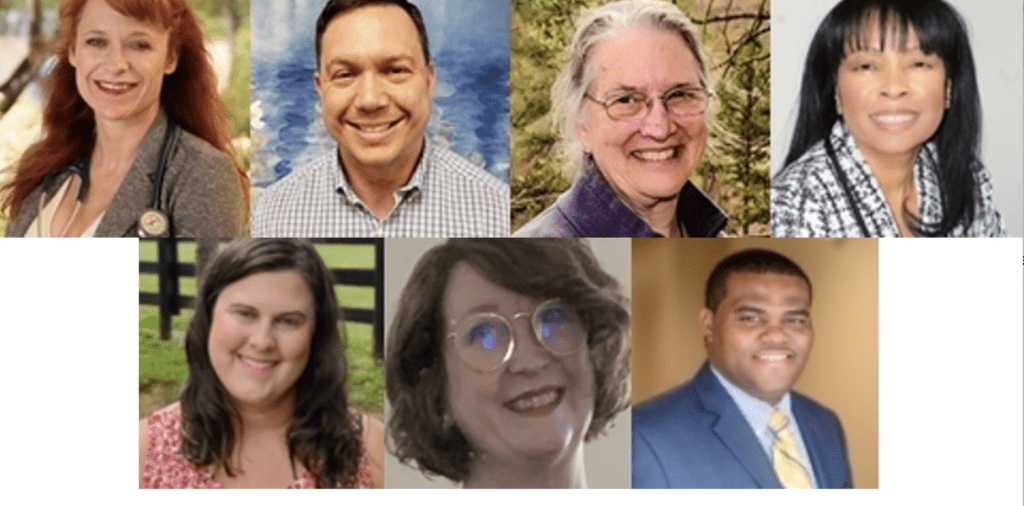
Top Row (L-R): April Dobroth, Joshua Faucett, Mickey Gillmore, Charlotte Morris. Bottom Row (L-R): April Tabor, Tawny Tseng, Chris Turley.
The goals of the ABAC include:
- Align their actions with the University and the Office of DEI goals.
- Upon submission of a bias reporting form, determine if acts of racism and/or bias have been committed.
- Recommend a potential plan of action to the human resources director and the appropriate supervisor (department chair, program director, chief operating officer, dean, and/or president).
One or more of the following actions may be recommended by the ABAC:
Conversation: The CDIO, Human Resources Director, Dean, Chief Operations Officer, and/or President may have a conversation regarding the incident with the person(s) perceived as responsible for a bias related-incident, respecting wishes for anonymity or otherwise.
Mediation: The CDIO, Human Resources Director, Dean, Chief Operations Officer, and/or President could arrange mediation between the individual reporting the incident and the person(s) involved in the incident.
Referral: Support and counseling for the affected individual and/or accused individual could be arranged.
Education: on bias.
Disciplinary Action: Under certain circumstances and when institutional policy is violated, disciplinary action may be taken toward the person(s) who precipitated the incident. This could include a bias improvement plan suspension with or without pay or dismissal from the university.
No Further Action: This could be an outcome, for example, if the individual reporting the incident chooses not to further pursue it or if it cannot be determined that laws or institutional policies were violated.
Meet the Council Members:
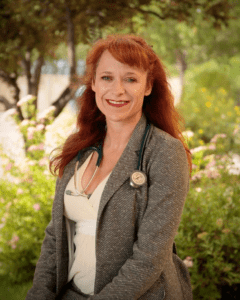
APRIL DOBROTH, DNP, APRN, FNP-C, PMHNP-BC
Clinical Director, PMHNP Program
For over a decade, Dr. Dobroth has served in rural and underserved communities as a National Health Service Corp member and ambassador. She served as a representative for primary care providers on the New Mexico Behavioral Health Coalition (NMBHC). As a representative of the NMBHC, she worked closely with the NM Governor’s office and the director of Health and Human Services in New Mexico to address the dire need for increased access to behavioral health services in the state. She has also served as an expert speaker before the Colorado and New Mexico state legislature on mental health issues.
“Much like the pieces of fabric that come together to form a beautiful quilt, I truly believe that there is strength and beauty in diversity and inclusion. While I have witnessed the ugliness of racism on the personal and community level, I have also seen the beauty that inclusion brings to a society. I am truly a richer person having learned of the diverse life experiences of others. Simply put, I want to be a quilter that contributes to the creation of a more inclusive educational experience at FNU.”
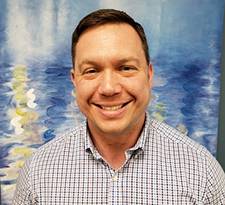
JOSHUA FAUCETT, DNP, MBA, FNP-BC, CNE
Assistant Professor, Course Coordinator PC705 Advanced Pathophysiology
Dr. Faucett is a Family Nurse Practitioner with a decade of experience in oncology. He also completed two tours of duty during the Iraq War in the U.S. Army as an Infantry Squad Leader. His research focus is Veteran mental health and suicide prevention.
“An institution that is equitable for students, faculty, and staff is an attainable goal, but it will take work for us to get there. I am here to contribute to this shared goal.”
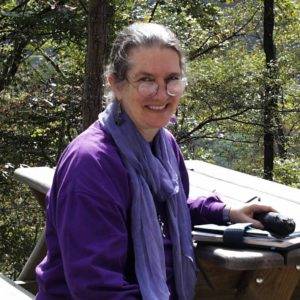
MICKEY GILLMOR, MN, CNM
Course Faculty and Co-Chair of Admissions
Mickey Gillmor has taught at Frontier since 1995 when she answered the call to become a Regional Clinical Coordinator for what was then the Frontier School of Midwifery and Family Nursing. Her 26 years of clinical practice as a midwife have taken place within the Grady Health System, a two-county public hospital in inner-city Atlanta. She credits the Grady patients with teaching her a lot about life for Black and Latinx people in Atlanta without commercial health insurance. The challenges are real. Prior to becoming a nurse, I worked in the New York City Public Schools supporting teachers in innovative classroom and science curriculum projects.
“White people have a lot to learn about racism in America. Straight people have a lot to learn about the challenges faced by LGBTQ people. Believers have a lot to learn about those of other faiths — and about agnostics and atheists. Young people have a lot to learn about aging! We are never done. For Frontier, diversity is essential and true diversity is not possible without equity and inclusion. We all have a lot to learn and it will not be easy, but it is critical for the University and for our civilization. As part of this Council, I hope to support this growth and learning.”
CHARLOTTE MORRIS, DNM, CNM, FACNM
Assistant Professor Frontier Nursing University
Course Faculty PC 713, and NP 703
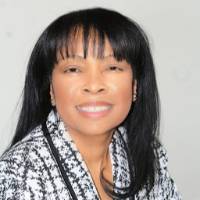 Charlotte Morris is a Certified Nurse-Midwife with over 30 years of clinical practice caring for women and working with families fighting systems injustices. Since coming to Frontier four years ago, she has had the opportunity to serve as Co-Chair of the Diversity and Inclusion Committee. Her interest in anti-racism and bias reporting at Frontier is to help promote an atmosphere of caring and support.
Charlotte Morris is a Certified Nurse-Midwife with over 30 years of clinical practice caring for women and working with families fighting systems injustices. Since coming to Frontier four years ago, she has had the opportunity to serve as Co-Chair of the Diversity and Inclusion Committee. Her interest in anti-racism and bias reporting at Frontier is to help promote an atmosphere of caring and support.
“Antiracists acknowledge that there are differences between races, but these differences aren’t responsible for inequities—policies are.” — Ibram Kendi
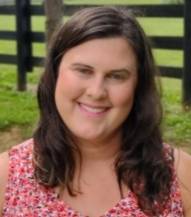
APRIL TABOR, BBA, MS
ETM Senior Grants Management Officer
In addition to her role as FNU’s Grants Management Officer, April Tabor is the co-chair of the Mission and Philosophy Committee and a member of the DEI Infrastructure subcommittee. She was also a staff member of the Mary Breckinridge Task Force.
“As an Equal Employment Opportunity Counselor for three years in my previous employment with the state government, I participated in yearly DEI training, recorded statements, conducted investigations, and helped resolve conflicts.”
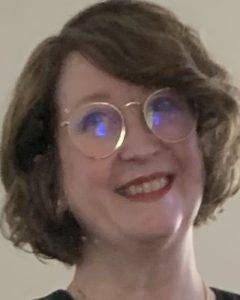
TAWNY TSENG, DNP, PMHNP-BC, FNP-BC
Assistant Professor, Course Coordinator MH707, MH717 PMHNP program
Dr. Tseng has been a psychiatric and family nurse practitioner since 2012. The majority of her career has been spent in the care of the psychiatric population. The focus of her scholarly endeavors has been medical history with an emphasis on psychiatric history and the effects of limited or biased care.
“We all deserve the space we stand in and we deserve the chance to celebrate what makes us who we are while also celebrating the beauty and brilliance in others. To that end, I will quote the great Ruth Bader Ginsburg: ‘We will all profit from a more diverse, inclusive society, understanding, accommodating, even celebrating our differences, while pulling together for the common good.’”
CHRIS TURLEY, MS, BS
Diversity, Equity, and Inclusion (DEI) Coordinator
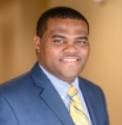 While at Frontier, Turley has been instrumental in the execution of the Diversity Impact Conference, quarterly speaker series, FNU Diversity Impact Facebook Page, and conference marketing (Diverse conferences), as well as assisting with the FNU Comprehensive Mentoring and Professional Organizational Mentoring (POMP) programs. He serves as a staff member on the Admissions, D&I, Marketing, and Mission and Philosophy Committees. He also serves as the chair of the Diversity Impact Planning Ad-hoc (DIPA) Committee and co-chair on the Culture and Belonging Sub-Committee of the President’s DEI Task Force. He served as a staff member on the Mary Breckinridge Task Force.
While at Frontier, Turley has been instrumental in the execution of the Diversity Impact Conference, quarterly speaker series, FNU Diversity Impact Facebook Page, and conference marketing (Diverse conferences), as well as assisting with the FNU Comprehensive Mentoring and Professional Organizational Mentoring (POMP) programs. He serves as a staff member on the Admissions, D&I, Marketing, and Mission and Philosophy Committees. He also serves as the chair of the Diversity Impact Planning Ad-hoc (DIPA) Committee and co-chair on the Culture and Belonging Sub-Committee of the President’s DEI Task Force. He served as a staff member on the Mary Breckinridge Task Force.
“I have a strong base dealing with issues concerning race relations as I had to deal with similar issues growing up in a marginalized community in Kentucky.”
To learn more about our recent Diversity, Equity, and Inclusion efforts, read our Summer 2021 Quarterly Bulletin.

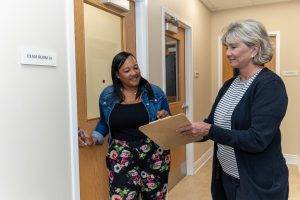
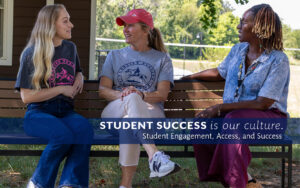



















 Carrie Belin is an experienced board-certified Family Nurse Practitioner and a graduate of the Johns Hopkins DNP program, Johns Hopkins Bloomberg School of Public Health, Georgetown University School of Nursing, and Johns Hopkins School of Nursing. She has also completed fellowships at Georgetown and the University of California Irvine.
Carrie Belin is an experienced board-certified Family Nurse Practitioner and a graduate of the Johns Hopkins DNP program, Johns Hopkins Bloomberg School of Public Health, Georgetown University School of Nursing, and Johns Hopkins School of Nursing. She has also completed fellowships at Georgetown and the University of California Irvine. Angie has been a full-scope midwife since 2009. She has experience in various birth settings including home, hospital, and birth centers. She is committed to integrating the midwifery model of care in the US. She completed her master’s degree in nurse-midwifery at Frontier Nursing University (FNU) and her Doctorate at Johns Hopkins University. She currently serves as the midwifery clinical faculty at FNU. Angie is motivated by the desire to improve the quality of healthcare and has led quality improvement projects on skin-to-skin implementation, labor induction, and improving transfer of care practices between hospital and community midwives. In 2017, she created a short film on skin-to-skin called
Angie has been a full-scope midwife since 2009. She has experience in various birth settings including home, hospital, and birth centers. She is committed to integrating the midwifery model of care in the US. She completed her master’s degree in nurse-midwifery at Frontier Nursing University (FNU) and her Doctorate at Johns Hopkins University. She currently serves as the midwifery clinical faculty at FNU. Angie is motivated by the desire to improve the quality of healthcare and has led quality improvement projects on skin-to-skin implementation, labor induction, and improving transfer of care practices between hospital and community midwives. In 2017, she created a short film on skin-to-skin called 










 Justin C. Daily, BSN, RN, has ten years of experience in nursing. At the start of his nursing career, Justin worked as a floor nurse on the oncology floor at St. Francis. He then spent two years as the Director of Nursing in a small rural Kansas hospital before returning to St. Francis and the oncology unit. He has been in his current position as the Chemo Nurse Educator for the past four years. He earned an Associate in Nurse from Hutchinson Community College and a Bachelor of Science in Nursing from Bethel College.
Justin C. Daily, BSN, RN, has ten years of experience in nursing. At the start of his nursing career, Justin worked as a floor nurse on the oncology floor at St. Francis. He then spent two years as the Director of Nursing in a small rural Kansas hospital before returning to St. Francis and the oncology unit. He has been in his current position as the Chemo Nurse Educator for the past four years. He earned an Associate in Nurse from Hutchinson Community College and a Bachelor of Science in Nursing from Bethel College. Brandy Jackson serves as the Director of Undergraduate Nursing Programs and Assistant Educator at Wichita State University and Co-Director of Access in Nursing. Brandy is a seasoned educator with over 15 years of experience. Before entering academia, Brandy served in Hospital-based leadership and Critical Care Staff nurse roles. Brandy is passionate about equity in nursing education with a focus on individuals with disabilities. Her current research interests include accommodations of nursing students with disabilities in clinical learning environments and breaking down barriers for historically unrepresented individuals to enter the nursing profession. Brandy is also actively engaged in Interprofessional Education development, creating IPE opportunities for faculty and students at Wichita State. Brandy is an active member of Wichita Women for Good and Soroptimist, with the goal to empower women and girls. Brandy is a TeamSTEPPS master trainer. She received the DASIY Award for Extraordinary Nursing Faculty in 2019 at Wichita State University.
Brandy Jackson serves as the Director of Undergraduate Nursing Programs and Assistant Educator at Wichita State University and Co-Director of Access in Nursing. Brandy is a seasoned educator with over 15 years of experience. Before entering academia, Brandy served in Hospital-based leadership and Critical Care Staff nurse roles. Brandy is passionate about equity in nursing education with a focus on individuals with disabilities. Her current research interests include accommodations of nursing students with disabilities in clinical learning environments and breaking down barriers for historically unrepresented individuals to enter the nursing profession. Brandy is also actively engaged in Interprofessional Education development, creating IPE opportunities for faculty and students at Wichita State. Brandy is an active member of Wichita Women for Good and Soroptimist, with the goal to empower women and girls. Brandy is a TeamSTEPPS master trainer. She received the DASIY Award for Extraordinary Nursing Faculty in 2019 at Wichita State University.  Dr. Sabrina Ali Jamal-Eddine is an Arab-disabled queer woman of color with a PhD in Nursing and an interdisciplinary certificate in Disability Ethics from the University of Illinois Chicago (UIC). Dr. Jamal-Eddine’s doctoral research explored spoken word poetry as a form of critical narrative pedagogy to educate nursing students about disability, ableism, and disability justice. Dr. Jamal-Eddine now serves as a Postdoctoral Research Associate in UIC’s Department of Disability and Human Development and serves on the Board of Directors of the National Organization of Nurses with Disabilities (NOND). During her doctoral program, Sabrina served as a Summer Fellow at a residential National Endowment of the Humanities (NEH) Summer Institute at Arizona State University (2023), a summer fellow at Andrew W. Mellon’s National Humanities Without Walls program at University of Michigan (2022), a Summer Research Fellow at UC Berkeley’s Othering & Belonging Institute (2021), and an Illinois Leadership Education in Neurodevelopmental and related Disabilities (LEND) trainee (2019-2020).
Dr. Sabrina Ali Jamal-Eddine is an Arab-disabled queer woman of color with a PhD in Nursing and an interdisciplinary certificate in Disability Ethics from the University of Illinois Chicago (UIC). Dr. Jamal-Eddine’s doctoral research explored spoken word poetry as a form of critical narrative pedagogy to educate nursing students about disability, ableism, and disability justice. Dr. Jamal-Eddine now serves as a Postdoctoral Research Associate in UIC’s Department of Disability and Human Development and serves on the Board of Directors of the National Organization of Nurses with Disabilities (NOND). During her doctoral program, Sabrina served as a Summer Fellow at a residential National Endowment of the Humanities (NEH) Summer Institute at Arizona State University (2023), a summer fellow at Andrew W. Mellon’s National Humanities Without Walls program at University of Michigan (2022), a Summer Research Fellow at UC Berkeley’s Othering & Belonging Institute (2021), and an Illinois Leadership Education in Neurodevelopmental and related Disabilities (LEND) trainee (2019-2020). Vanessa Cameron works for Vanderbilt University Medical Center in Nursing Education & Professional Development. She is also attending George Washington University and progressing towards a PhD in Nursing with an emphasis on ableism in nursing. After becoming disabled in April 2021, Vanessa’s worldview and perspective changed, and a recognition of the ableism present within healthcare and within the culture of nursing was apparent. She has been working since that time to provide educational foundations for nurses about disability and ableism, provide support for fellow disabled nursing colleagues, and advocate for the disabled community within healthcare settings to reduce disparities.
Vanessa Cameron works for Vanderbilt University Medical Center in Nursing Education & Professional Development. She is also attending George Washington University and progressing towards a PhD in Nursing with an emphasis on ableism in nursing. After becoming disabled in April 2021, Vanessa’s worldview and perspective changed, and a recognition of the ableism present within healthcare and within the culture of nursing was apparent. She has been working since that time to provide educational foundations for nurses about disability and ableism, provide support for fellow disabled nursing colleagues, and advocate for the disabled community within healthcare settings to reduce disparities. Dr. Lucinda Canty is a certified nurse-midwife, Associate Professor of Nursing, and Director of the Seedworks Health Equity in Nursing Program at the University of Massachusetts Amherst. She earned a bachelor’s degree in nursing from Columbia University, a master’s degree from Yale University, specializing in nurse-midwifery, and a PhD from the University of Connecticut. Dr. Canty has provided reproductive health care for over 29 years. Her research interests include the prevention of maternal mortality and severe maternal morbidity, reducing racial and ethnic health disparities in reproductive health, promoting diversity in nursing, and eliminating racism in nursing and midwifery.
Dr. Lucinda Canty is a certified nurse-midwife, Associate Professor of Nursing, and Director of the Seedworks Health Equity in Nursing Program at the University of Massachusetts Amherst. She earned a bachelor’s degree in nursing from Columbia University, a master’s degree from Yale University, specializing in nurse-midwifery, and a PhD from the University of Connecticut. Dr. Canty has provided reproductive health care for over 29 years. Her research interests include the prevention of maternal mortality and severe maternal morbidity, reducing racial and ethnic health disparities in reproductive health, promoting diversity in nursing, and eliminating racism in nursing and midwifery. Dr. Lisa Meeks is a distinguished scholar and leader whose unwavering commitment to inclusivity and excellence has significantly influenced the landscape of health professions education and accessibility. She is the founder and executive director of the DocsWithDisabilities Initiative and holds appointments as an Associate Professor in the Departments of Learning Health Sciences and Family Medicine at the University of Michigan.
Dr. Lisa Meeks is a distinguished scholar and leader whose unwavering commitment to inclusivity and excellence has significantly influenced the landscape of health professions education and accessibility. She is the founder and executive director of the DocsWithDisabilities Initiative and holds appointments as an Associate Professor in the Departments of Learning Health Sciences and Family Medicine at the University of Michigan. Dr. Nikia Grayson, DNP, MSN, MPH, MA, CNM, FNP-C, FACNM (she/her) is a trailblazing force in reproductive justice, blending her expertise as a public health activist, anthropologist, and family nurse-midwife to champion the rights and health of underserved communities. Graduating with distinction from Howard University, Nikia holds a bachelor’s degree in communications and a master’s degree in public health. Her academic journey also led her to the University of Memphis, where she earned a master’s in medical anthropology, and the University of Tennessee, where she achieved both a master’s in nursing and a doctorate in nursing practice. Complementing her extensive education, she completed a post-master’s certificate in midwifery at Frontier Nursing University.
Dr. Nikia Grayson, DNP, MSN, MPH, MA, CNM, FNP-C, FACNM (she/her) is a trailblazing force in reproductive justice, blending her expertise as a public health activist, anthropologist, and family nurse-midwife to champion the rights and health of underserved communities. Graduating with distinction from Howard University, Nikia holds a bachelor’s degree in communications and a master’s degree in public health. Her academic journey also led her to the University of Memphis, where she earned a master’s in medical anthropology, and the University of Tennessee, where she achieved both a master’s in nursing and a doctorate in nursing practice. Complementing her extensive education, she completed a post-master’s certificate in midwifery at Frontier Nursing University.









 Dr. Tia Brown McNair is the Vice President in the Office of Diversity, Equity, and Student Success and Executive Director for the Truth, Racial Healing, and Transformation (TRHT) Campus Centers at the American Association of Colleges and Universities (AAC&U) in Washington, DC. She oversees both funded projects and AAC&U’s continuing programs on equity, inclusive excellence, high-impact practices, and student success. McNair directs AAC&U’s Summer Institutes on High-Impact Practices and Student Success, and TRHT Campus Centers and serves as the project director for several AAC&U initiatives, including the development of a TRHT-focused campus climate toolkit. She is the lead author of From Equity Talk to Equity Walk: Expanding Practitioner Knowledge for Racial Justice in Higher Education (January 2020) and Becoming a Student-Ready College: A New Culture of Leadership for Student Success (July 2016 and August 2022 Second edition).
Dr. Tia Brown McNair is the Vice President in the Office of Diversity, Equity, and Student Success and Executive Director for the Truth, Racial Healing, and Transformation (TRHT) Campus Centers at the American Association of Colleges and Universities (AAC&U) in Washington, DC. She oversees both funded projects and AAC&U’s continuing programs on equity, inclusive excellence, high-impact practices, and student success. McNair directs AAC&U’s Summer Institutes on High-Impact Practices and Student Success, and TRHT Campus Centers and serves as the project director for several AAC&U initiatives, including the development of a TRHT-focused campus climate toolkit. She is the lead author of From Equity Talk to Equity Walk: Expanding Practitioner Knowledge for Racial Justice in Higher Education (January 2020) and Becoming a Student-Ready College: A New Culture of Leadership for Student Success (July 2016 and August 2022 Second edition).